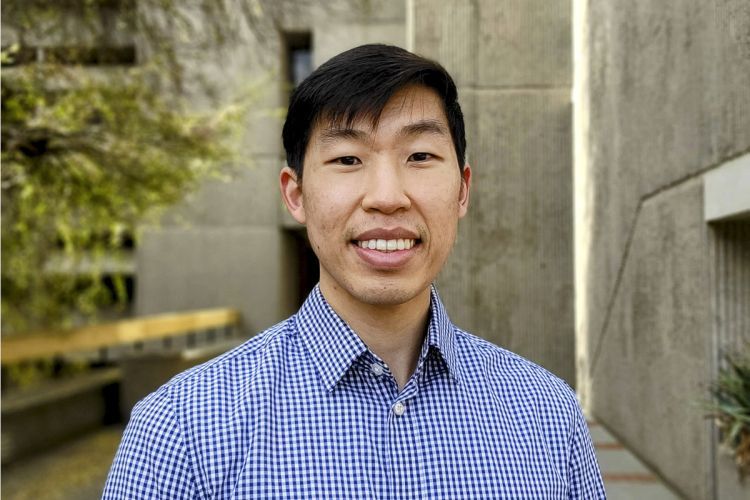Breadcrumb
Pharmacy student uses streetwear to support rare disease research

The more Jason Hong ’22 learned about rare diseases the more he felt compelled to find a way to support those who carry serious, life-altering conditions.
“I wanted to go out of my comfort zone and do something unique,” said Hong. “I decided to combine my passion for science with streetwear.”
In December 2020, Hong launched Nice Genes, an e-commerce business which sells trademarked apparel and merchandise. The profits go toward rare disease scientific research and patient support organizations, such as the National Organization for Rare Disorders. To date, Nice Genes has donated nearly $1,500.
In the United States, a rare disease is defined as a condition affecting fewer than 200,000 people in the U.S. According to the National Institutes of Health, there may be as many as 7,000 rare diseases which affect more than 25 million Americans. February 28 has been designated Rare Disease Day to advocate for research and to show support for those whose lives are affected.
“I wanted to go out of my comfort zone and do something unique. I decided to combine my passion for science with streetwear.”
Hong has already had the opportunity to be a part of groundbreaking research. He co-developed a new CRISPR gene editing tool to enhance genomic studies in neurodegenerative diseases.
“CRISPR-Cas9 is a tool used by scientists to make small changes or edits to DNA,” he said. “The CRISPR tool can be modified so it can increase or decrease the amount that a gene is turned on. I helped take this one step further by adding a switch that can turn this system on and off. This allows scientists to do genomic studies efficiently where they can look at different genes and see which ones are important to the development of diseases, such as Alzheimer’s disease.”
Hong’s goal after graduation is to use his doctor of pharmacy degree to conduct clinical research. In the fall, he will be starting a two-year post-doctoral clinical science fellowship at Genentech in partnership with University of the Pacific’s Fellowship in Industry Program.
“I will be doing early-stage clinical development in therapeutic fields such as neurology, immunology, infectious disease, ophthalmology and metabolism,” he said. “I will be learning how to design and develop clinical trials for new drugs, so they become hopeful candidates for treating specific diseases. I will be working cross-functionally with different teams to analyze the safety and efficacy of investigative drugs that are tested on healthy participants.”
He will also support Pacific faculty with research and teaching.
The learning curve for fellows can be steep, but Hong shared Pacific has prepared him with a strong foundation. Hong was a part of Pacific’s Innovative Clinical and Outcomes Research Lab, where he had the opportunity to help design clinical trials for dietary supplements to test their effects on anxiety and sleep. In addition, he completed an Advanced Pharmacy Practice Experience rotation at Gilead Sciences focused on clinical operations.





